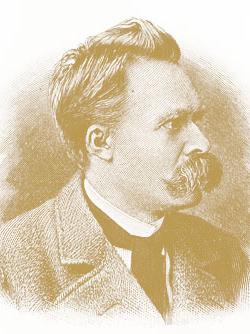What is Truth?
Can the truth be found through science, philosophy or materialism? Does absolute Truth even exist? You need to know!
When Jesus Christ was on trial for His life on trumped up charges before the Roman governor Pontius Pilate, He told Pilate, “For this cause I was born, and for this cause I have come into the world, that I should bear witness to the truth. Everyone who is of the truth hears My voice” (John 18:37). Pilate then ends their conversation with a question that has echoed through the millennia; “What is truth?” (v.38).
Over the millennia, philosophers have wrestled with this very question. Various religions have co-opted it. Some scientists increasingly claim to be the sole arbiters of truth. But the question remains: “What is truth?”
Few other questions have the ability to fundamentally challenge our understanding of the world, and few other answers show such promise to completely revolutionize our lives. In many ways, it is the question of questions!
So, how can we know how the world really is? What is the truth? How can we discover it? How can we know what is fundamentally true—and then live our lives accordingly?
In today’s world of “situational ethics” and moral relativism, some even question the very possibility that there is any absolute in the world. Is all truth relative? Is nothing fundamentally true or false?
When someone claims that all truths are relative, it can be amusing to ask them an important question: “Well, then, is it absolutely true that there is no absolute truth?” Of course, if that statement is true, then it is false—and if it is false it must be true! The statement that all truth is relative is complete nonsense! Not only is it utterly self-refuting; it is something that no one truly believes—not even those who say it.
In fact, absolute truth is very real. It is out there! But where can we find it?
Given the nature of the question “What is truth?” it sounds like something from the world of philosophy. Can human philosophy provide us with a source of truth?
Do Philosophers Know the Truth?
History has seen an amazing parade of intellects and thinkers whose names are known to almost all of us. You say the word “philosopher” and names like Aristotle come to mind… Plato and Socrates… Then there are great Western thinkers, such as Thomas Aquinas and Rene Descartes—and Eastern thinkers such as Confucius. And there are lesser-known names that have left their mark on human philosophical thought, such as the great Persian Avicenna and the multiple Zenos of Greece. From Kierkegaard and Kant, to more modern philosophers such as Whitehead, Fromm, and Ayn Rand—many people have delved deeply into the questions of who we are, why we’re here, what is the meaning and purpose of life, what is right and wrong, and, fundamentally, what is truth?
We see in the struggles of the secular philosophers throughout time a great deal of logic and discussion, which is good, but no real answers. Many young men and women enroll in philosophy classes at university hoping to finally resolve life’s great questions only to discover that the discussions and debates among philosophers seem to produce, mainly, more discussions and debates! As one of the wisest men to have ever lived, King Solomon, once wrote, “I set my heart to seek and search out by wisdom concerning all that is done under heaven; this burdensome task God has given to the sons of man, by which they may be exercised. I have seen all the works that are done under the sun; and indeed, all is vanity and grasping for the wind” (Ecclesiastes 1:13–14).
Certainly, the study of philosophy can have benefits: God is logical, and God’s word encourages logical thinking. But with no common, fundamental ground on which to stand, the philosophical debates of mankind about the nature of truth only go so far—in the end, producing nothing more than additional debates, in which the arguing goes on and on, but the sort of fundamental truth that we need to found our lives upon alludes us. In our search for truth, we will need to look elsewhere.
Do Scientists Know the Truth?
Today, it seems that for many, the most popular contender for the title of truth-bringer is natural science. Certainly, the practice of science is powerful. It has allowed us to determine the chemical composition of stars and nebula and the orbital periods of distant planets far from earth, and we have probed the depths of the subatomic realm, identifying many of the amazing laws working behind the scenes in the world around us!
And yet, too many scientists today assume that their knowledge about the creation implies that there is no Creator. It is as if experts on the Mona Lisa were to say they understood the painting so well as to conclude that its painter, Leonardo da Vinci, never existed!
Further, there are many scientists now claiming that science is the only means by which all truth worth knowing can be understood. We see shades of this mindset in the works of some popular atheistic scientists, such as biologist Richard Dawkins, physicist Lawrence Krauss and neurobiologist Sam Harris. In his book The Moral Landscape, Harris attempts to reduce even absolute morality down to purely scientific terms, knowledge, and experimentation.
Yet, such efforts to make science the ultimate source and judge of truth are doomed from the start, and for so many reasons. For one, science is, ultimately, a human endeavor, vulnerable to the usual pitfalls of pride, politics, and prejudice. Evolutionary biologist Austin Hughes wrote that “[T]he high confidence in funding and peer-review panels should seem misplaced to anyone who has served on these panels and witnessed the extent to which preconceived notions, personal vendettas, and the like can torpedo even the best proposals” (“The Folly of Scientism,” The New Atlantis, Fall 2012, p. 32).
Of course, scientific theories are never purely statements of facts, nor should they be. They are interpretations of facts and, as interpretations, are always subject to being colored by underlying assumptions and worldviews. Often scientists disagree passionately among themselves about their interpretations, though you rarely see this in television programs produced for the public.
Actually, the practice of science, itself, rests upon principles of logic and mathematics and metaphysical assumptions that cannot, themselves, be proven scientifically. In fact, the very statement that science should be the ultimate arbiter of truth and meaning cannot, itself, be proven scientifically! For those who believe it, it is an article of metaphysical faith, and not a “scientific truth” at all.
Concerning morality, science is impotent in defining for us what is truly good or truly evil. No experiment can tell us, for instance, whether or not the Holocaust was truly evil or whether murder or rape are evils or virtues.
Science has given us an amazing understanding of how many aspects of our world work—but when we begin to look at it as the only real “source” of truth, we find it to be a poor source, indeed. Mathematical truths, aesthetic truths, truths about our purpose and the meaning of our lives—even the most fundamental moral truths and the most basic concepts of right and wrong—none of these is accessible through the microscope of the biologist or the telescope of the astronomer.
An answer to the question “What is truth?” will need to be found elsewhere.
Mathematical Truth?
If we are looking for ultimate truths—fundamental, dependable truths—why not consider mathematics? The abstract laws of the mathematical sciences go much deeper than the laws of physics and chemistry that we see in the rest of science. The fundamental truth that 1 + 1 = 2 is not truly open to “interpretation” or vulnerable to the whims and fads of academia in any given decade. The theorems and proofs of Euclidean geometry or the postulates and principles of algebra do not even depend on the universe in which we live, and given their underlying axioms and assumptions would be true in any universe! The absolute rigor of mathematics and its uncompromising view of proof and truth is part of the appeal of the “queen and servant of science” to those who study it. And many mathematicians have wondered what the ultimate reach of mathematics might be and whether it may be the key to unlocking the ultimate question of truth for all time.
Seventeenth century mathematician Wilhelm Gottfried Leibniz—co-discoverer of the mathematics of calculus, alongside the great Isaac Newton—was a logician of the highest order. He believed that all of life was inherently logical and that, if we could simply encode all of our thoughts on paper in math-like symbols, we could discover the “mathematical” rules that would lead us to truth. In his 1685 treatise The Art of Discovery he wrote: “The only way to rectify our reasonings is to make them as tangible as those of the Mathematicians, so that we can find our error at a glance, and when there are disputes among persons, we can simply say: ‘Let us calculate, without further ado, to see who is right.’”
Leibniz was not alone in waxing poetic about the presumed power of symbolic, mathematical reasoning. Such motivations also stirred the famous Alfred North Whitehead and Bertrand Russell to create one of the landmark works of mathematical logic, The Principia Mathematica. Their desire was to lay a logical foundation that would allow mankind to prove all of mathematics. It dug so deep, and sought to lay a foundation so fundamental, that in its first edition the simple statement “1 + 1 = 2” does not show up until page 379!
The idea of systems of symbolic thought that could derive truth just as one performs a mathematical calculation was tempting to many! But it was a fantasy. In the 1930s, mathematician Kurt Gödel dropped the equivalent of a logical nuclear bomb. The details of his work are abstract and hard to understand for those without mathematical training, but essentially Gödel proved mathematically that not all truths could be proven mathematically! In fact, he proved that not even all purely mathematical truths could be proven mathematically.
The idea of a perfect, symbolic set of axioms and theorems that would unlock all truths was, in essence, dead.
For those searching for an ultimate source of truth, mathematics is a fascinating and lively port of call but not an end to their voyage.
In all of these efforts, we see the best and brightest of mankind struggling to define “truth” and, ultimately, failing miserably. Ask a philosopher or a scientist what the purpose of life or the value of existence is, and you will likely get a variety of answers based on a variety of theories and a variety of utter nonsense.
Concerning the meaning, value, and purpose of life and existence and concerning the fundamental foundations of morality: the philosophers are confused, the scientists are empty-handed, and the mathematicians are silent.
Revealed Truth!
Yet we should consider: Would a loving God—the personal Creator of all mankind—leave His Creation without some basis of understanding, some guide, some standard of truth? Would He craft us only to abandon us to stumble in darkness with no answer, no basis for determining what is true and right, what is good and what is evil? Would He create us only to leave us with no hope of ever understanding the truth about why we were created?
If man needs to know what is true but cannot fully discover it on his own, then surely a loving God would leave for us some record or account—some guide for knowing the truth. And in the revelation of the Almighty and Eternal God—the Bible, His word—we ultimately do find truth.
Consider the Bible’s own claims concerning its nature and content. On the night He was going to be betrayed and arrested before His crucifixion, Jesus Christ prayed to His Father in heaven in the presence of His disciples. In that prayer, He made a simple request and a beautiful statement: “Sanctify them by Your truth. Your word is truth” (John 17:17). Here, Jesus Christ was simply reflecting the sentiment expressed in the Old Testament, “You are near, O Lord, and all Your commandments are truth” (Psalm 119:151).
The truth contained in God’s word, the Bible, is not meant to be simply accepted intellectually on its own testimony but to be put to the test! As the Apostle Paul wrote, “Prove all things; hold fast that which is good” (1 Thessalonians 5:21, KJV)!
Despite its critics, who are many, and despite its detractors, who are passionate, Scripture has survived through the centuries as a solid, reliable, practical source of wisdom and knowledge—of truth! It continues to pass the test of historical discovery and of scientific research. It continues to prove itself in the lives of those who dare to live by its words! Though it has been attacked and belittled generation after generation, those attackers live and die but the Bible’s words and the power of its truths remain—transforming lives, establishing families, guiding those who need guidance, and answering the questions of meaning and purpose with an authority and a power that no other source on earth has ever been able to match!
The role of God’s word as a source of ultimate truth—truth that can only come from the Almighty Creator, Himself—is not one that must be simply accepted on the basis of a philosopher’s argument, or a scientist’s experiment, or a mathematician’s proof. God, Himself, validates His word in the lives of those who will allow Him to work in them to understand its truths and who commit themselves to walking in the path it illuminates. Those willing to devote themselves to the transcendent God of the Bible not only find an answer to the question “What is truth?”—they also find a living, loving, and beautifully personal Guide and Companion to help them live out that truth, forever.
It is the greatest truth one could ever hope to find.






